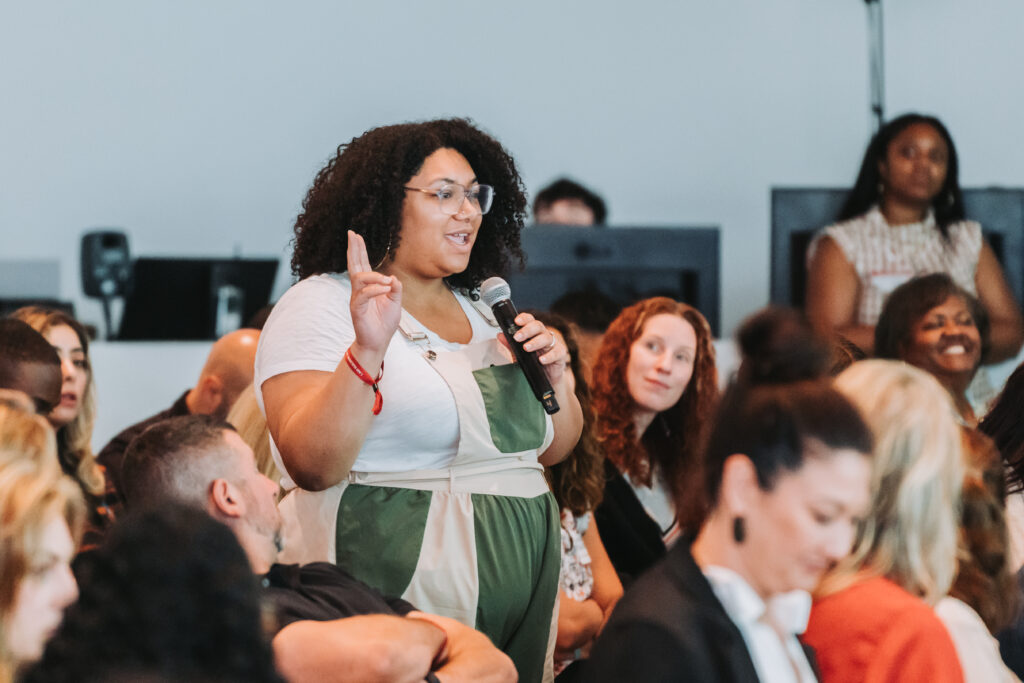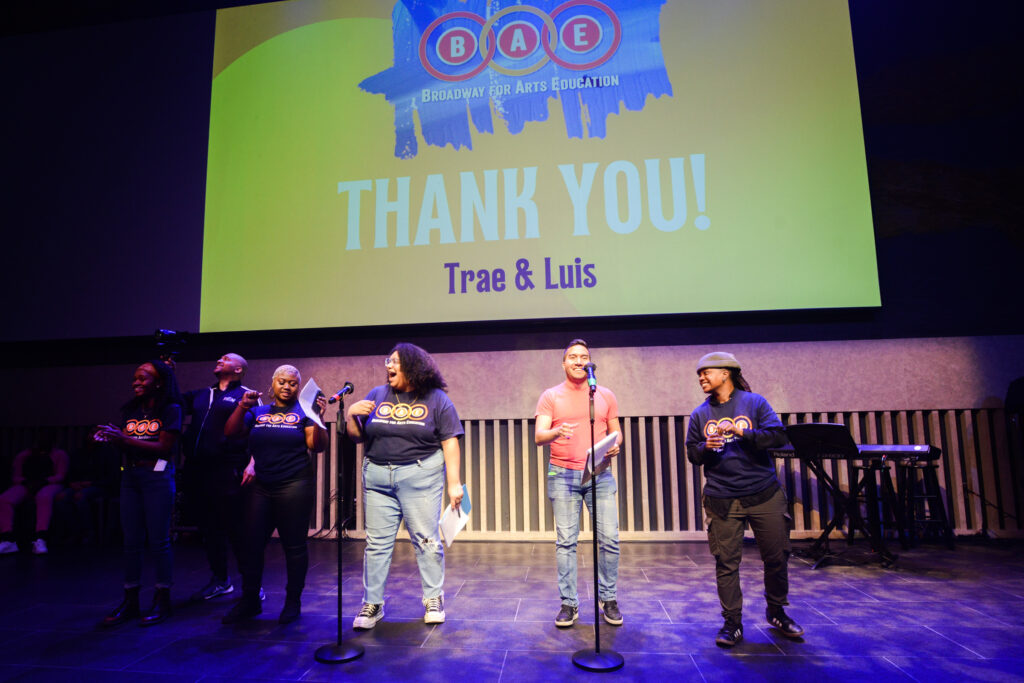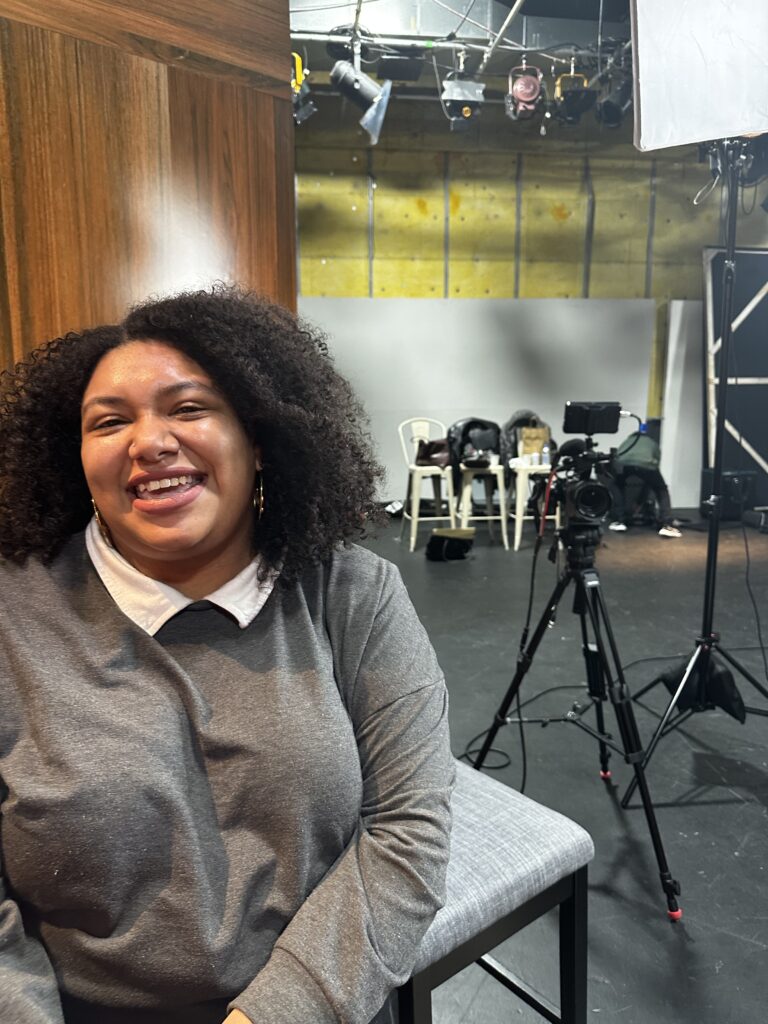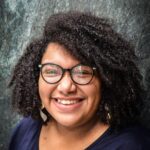
New York City Alliance Against Sexual Assault aims to “prevent sexual violence and reduce the harm it causes through education, prevention programming, advocacy for survivors, and the pursuit of legal and policy changes.”
Tracia Banuelos-Rovaris had the opportunity to complete a project-based fellowship with the New York City Alliance Against Sexual Assault in the summer and fall of 2023. We had the honor of speaking with Tracia about their fellowship experiences. She shares with us the professional research background that led her to this opportunity, how the Alliance staff supported her in her work on a white paper on the “Enough is Enough” policy, and her best advice for building expertise towards your ideal career.
Tell us about your background and professional journey. What led you to the New York City Alliance Against Sexual Assault Fellowship?
There were quite a few life steps and life milestones that led to my public policy and research fellowship with the NYC Alliance Against Sexual Assault. During my undergraduate career at Wichita State University, I completed research internships through my Honors College and volunteered at places like the Wichita Family Crisis Center, as well as other campus activities. Given the reality that I wanted to work at the intersection of reproductive justice, racial justice, and research and the reality of living in Kansas, I knew I would need to build my career piece by piece.
As a college student, I gained experience working on remote and mission-based teams through national youth and social justice-centered fellowships. In 2017, I was selected as a Young People For Fellow, where I was tasked to create a written blueprint for social justice about a problem I wanted to respond to in my community. This led to completing the extremely helpful RESULTS Organizing and Advocacy Fellowship, where I gained experience writing letters to the editor and legislative advocacy. I also served on the Young Womxn of Color for Reproductive Justice Council with Advocates for Youth, where I learned about and joined the board of Abortion Conversation Projects.
After graduating from Wichita State University in 2018, I moved to Central New York to begin my career at Haven, an on-campus sexual violence resource center at Colgate University. Haven is where I gained direct experience working with college students, staff, and faculty in campus violence prevention and response work. This is the foundation of my Fellowship with the Alliance. In 2020, I moved to Harlem to work in Training and Technical Assistance for the New York City Alliance Against Sexual Assault, as well as begin my graduate studies at Hunter College. However, in June 2021, there was an unexpected, overnight shutdown of the Alliance, which forced me to focus on other aspects of my skill-building and overall career goals, such as independent consulting and leveraging my current training in graduate school to conduct interviews, focus groups, and other research activities for similar organizations.
When the Alliance re-opened with primarily new staff, I stayed in contact with the team. I supported their campaign efforts and was a keynote speaker for an event during their Sexual Assault Awareness Month programming. I kept them updated with my career goals and projects along the way.
What motivated you to complete the Alliance Fellowship at this point in your career?
This Fellowship was the ideal way to work toward my long-term goals immediately after completing my master’s, specifically creating research-based tools for organizations like the Alliance. My current full-time work fulfills my goals to work with youth of color in NYC, so I needed an opportunity to stay on track with recent anti-sexual violence work since I no longer worked in the field regularly.
Shortly after graduation, a colleague reached out to me about the opportunity to conduct research and generate a white paper as part of the Alliance’s advocacy priorities for campus survivors, and Enough is Enough providers. Everything they had written on the one-pager advertising the opportunity were skills I had focused on enhancing in my master’s program. I sent my updated CV and had an interview with someone on the team. Before I knew it, we started the Fellowship at the end of June.

How was your time during the Alliance Fellowship? How did this program allow you to advance your career and expand your professional network?
The highlight of my experience was the opportunity for collaboration and mentorship. Working with the Alliance staff, especially Sam Skaller, Senior Campus Coordinator, who championed the needs of students, campuses, and Enough is Enough Providers throughout the process was a dream collaboration. Sam’s depth of knowledge and experience in the field, in combination with my own, also narrowed in on what voices we still needed to interview for the paper and what core ideas needed to be communicated. We had a very tight timeline to work with and a lot of important things to say. My brain felt like it was exploding with information, and Sam was the person I could soundboard it all with. I also worked closely with the Executive Director, Emily Miles, who has so much public policy experience that helped me really grasp what was needed for the final product. I learned so much more about applied research through this experience.
This Fellowship put me in spaces that not only allowed me to demonstrate the quality of my work, but also connect with other individuals and organizations engaged in the same mission-driven work as myself. It’s given me the tools and tangible ways to demonstrate how research can be the period at the end of a program’s sentence.
As part of your Fellowship, you completed a policy white paper, “Enough is Not Enough: Maintaining New York State as a Leader in Campus Sexual Violence Prevention.” Can you tell us more about this project?
The Fellowship had a few milestones all towards one primary deliverable: the white paper. The entire project centers on an annual funding increase and data collection effort for New York State Education Law 129B Enough is Enough, one of few state laws that focuses on campus sexual violence prevention, creating funding streams for prevention work with Rape Crisis Centers (referred to as Enough is Enough Providers), and so much more. Based on the size and capacity of the Alliance, this project was independently implemented, with regular guidance, check-ins, and feedback from Alliance staff.
One week, I would conduct a content review of the Alliance’s current research; the other, I would be in interviews and focus groups with key stakeholders such as students/alumni, program providers, faculty and staff, and healthcare professionals. Another week, I would need to review interview transcriptions and find core themes. Once I finished this, I created an outline summarizing my findings and initial budgetary and legislative recommendations for New York State.
We met regularly until I completed the final version of the white paper to be distributed. During this phase, I also revisited the history of the Enough is Enough legislation that we were asking for funding increase towards. After completing the paper, we held a public launch of it over Zoom, where I served on a panel to discuss my research, implications from the research, and provide details we didn’t have room for in the paper.

What advice do you have for others interested in completing fellowships with the New York City Alliance Against Sexual Assault or similar research programs?
I would advise anyone wanting to engage in freelance research and consulting to cultivate meaningful relationships with their network and share their goals and skills widely. You are your best and biggest advocate first. With community, you can create the conditions for yourself to thrive if they don’t yet exist.
Looking back, my career hasn’t felt like I have pivoted as much because every opportunity I engaged with has given me a different skill to enhance, a community to grow with, or an environment to apply my education. I could thrive with my Fellowship with the Alliance because I had worked in the field and had firsthand program implementation experience about the issues the white paper sought to address.
In those roles, I dreamed about having the credentials and experience to write about these experiences from the ground up and be taken seriously. It took time, but I knew my goals were worth it before others affirmed them. I would encourage anyone to believe that their goals are worth creating a map for and that research is enhanced by personal experience as much as theory.
Interested in other social-justice research fellowships? Sign up to discover more than 2,700 professional and academic fellowships in the ProFellow database!

© 2024 ProFellow, LLC. All rights reserved.